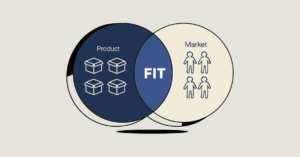Navigating the dynamic landscape of rapidly evolving emerging markets in the Middle East and North Africa (MENA) region is a journey teeming with promise and nuanced challenges. As a venture builder entrenched in this dynamic terrain, we have witnessed the allure of high returns intricately interwoven with considerations unique to these evolving markets. In this exploration, we delve into the compelling advantages and important considerations that define the investment narrative in MENA.
Advantages of Investing in Emerging Markets
In the dynamic pulse of emerging markets, particularly in the MENA region, opportunities unfold with a momentum fueled by rapid industrialization, urbanization, and a burgeoning middle class. These elements converge to create an ecosystem ripe for robust economic expansion. Strategically investing in businesses and stocks within these growing economies promises higher returns and unparalleled growth potential compared to their more developed counterparts.
Venturing into emerging markets is a strategic move for diversification, offering a hedge against regional economic downturns. This diversification not only mitigates risk but enriches the potential for sustained, long-term returns. The allure lies in the untapped potential of these markets, where substantial populations with rising incomes consistently generate unmet demands, creating avenues for businesses to capitalize on growth opportunities in unexplored territories.
The demographic dividends in many emerging markets, especially in the MENA region, contribute to a youthful and educated workforce, enhancing productivity levels. Rich in natural resources, these markets provide enticing opportunities for investments in commodities and related industries, ensuring a stable supply of raw materials and fostering growth and profitability. Strategic government-led initiatives, exemplified by transformative projects like Smart City Dubai, Qatar Vision 2020, Saudi Vision 2030, and so on, signal a commitment to innovation, infrastructure development, and economic diversification, creating a conducive environment for businesses and investors.
The MENA region’s geographical proximity to expansive markets serves as a strategic asset for multinational companies, facilitating the creation of robust supply chains, reducing transportation costs, and enabling businesses to efficiently cater to a broader customer base. Additionally, technological leapfrogging in emerging markets, particularly in areas like mobile payments, e-commerce, and renewable energy, creates an ideal landscape for technology-driven businesses.
Risks of Investing in Emerging Markets
However, amidst the allure, the pendulum swings towards considerations of stability, with political instability, corruption, opaque government regulations, and economic volatility casting shadows over the potential of emerging markets. Sudden changes in government policies, regulations, or economic conditions can significantly impact investments, necessitating vigilant monitoring of the political and economic landscape to mitigate risks effectively.
Currency volatility poses another challenge, as emerging markets are susceptible to fluctuations in exchange rates, impacting investment values and potentially leading to losses. Lack of transparency in financial reporting, corporate governance, and regulatory frameworks complicates risk assessments, demanding thorough due diligence, strong networks, and partnerships with local experts.
Infrastructure challenges, including inadequate transportation, communication, and supply chain limitations, alongside unreliable energy systems, can significantly impact business operations in terms of reliability, efficiency and cost-effectiveness. Lower liquidity levels in emerging markets, compared to developed counterparts, present challenges in buying or selling assets at desired prices, potentially leading to increased transaction costs and price volatility.
Divergent cultures, legal systems, government regulations, and business practices can pose challenges for foreign investors, emphasizing the importance of navigating these differences to successfully operate in emerging markets. Global economic factors, such as changes in interest rates, commodity prices, or economic downturns in developed markets, can have significant repercussions on emerging economies.
Heightened geopolitical tensions can cast a shadow over investor confidence in emerging markets. Political conflicts or regional disputes create an uncertain investment environment, demanding a thorough assessment of the geopolitical landscape and consideration of potential risks associated with such tensions. Lastly, investing in emerging markets, such as the MENA region, involves the challenge of a nascent track record for successful venture capital exits, adding layers to the intricacies faced by investors.
Informed Investing
In the dynamic tapestry of strategic investment in emerging markets, particularly in the MENA region, the narrative unfolds with both promise and caution. To harness the vast opportunities these markets offer, investors must embrace a balanced and informed approach. Thoroughly assessing the advantages and risks, strategically diversifying investments, implementing risk management strategies, and adopting a long-term perspective are the compass points in this dynamic journey. Meticulous research, staying abreast of geopolitical developments and economic trends, and leveraging local expertise are the essential tools for venture builders seeking success in the MENA region’s vibrant and evolving markets. If you have further questions or insights to share, let us know in the comments below!




